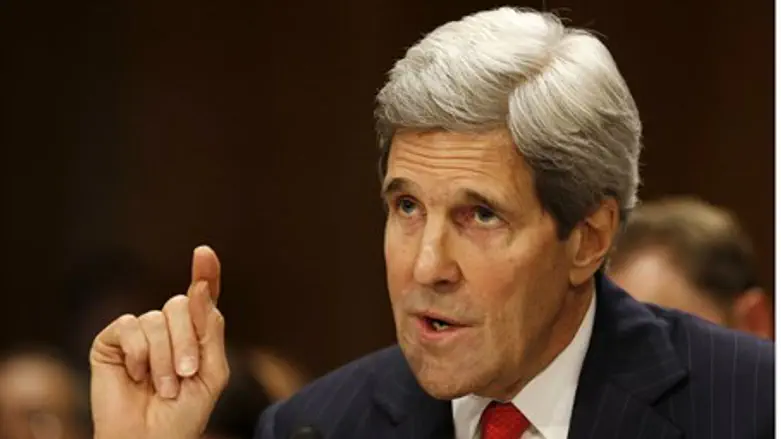
U.S. Secretary of State John Kerry has "made some progress" in complicated talks to try to reach a ceasefire in Gaza, his department said Thursday.
"We know we're not there yet. But I think we have made some progress," said deputy State Department spokeswoman Marie Harf, according to AFP.
"The secretary is very engaged in it. And hopefully soon we'll be able to get something temporary in place," she added.
Harf refused to be drawn further, including whether Washington was still trying to put in place a 24-hour truce or something longer, nor would she be drawn on how much longer the negotiations would take.
Progress is "always hard to quantify, but we believe we are getting closer," she was quoted as having told reporters.
Despite being overseas in India, Kerry has been "racking up quite a phone bill to the Middle East," Harf said, according to AFP.
She added that the top U.S. diplomat had spoken numerous times Thursday with his Qatari counterpart, as well as with Israeli Prime Minister Binyamin Netanyahu and the UN special envoy for the Middle East Robert Serry.
Kerry said earlier on Thursday that he remained hopeful for a ceasefire in the Gaza conflict but declined to predict when.
"The United States remains hopeful that it is achievable, and the sooner the better," Kerry said of a ceasefire.
"There is no promise in that, but I think everybody would feel better if there was a bona fide effort," Kerry told a joint news conference with Indian Foreign Minister Sushma Swaraj in New Delhi.
Hamas has rejected five successive ceasefire offers, and the U.S.'s own role in negotiating a truce has been cast into doubt after turning to Hamas allies Qatar and Turkey to draft a proposal which granted Hamas all of its key demands and was rejected by Israel.
Further controversy ensued after a transcript of what was claimed to be an audio recording of a "hostile" conversation between President Barack Obama and Prime Minister Netanyahu was released by Israeli Channel One.
The authenticity of the tape has been hotly disputed, however, with both American and Israeli officials denying the accuracy of the transcript.
Harf on Thursday also defended the Pentagon's decision to allow Israel to dip into U.S. ammunition stores to restock their soldiers, saying it would not prolong the fighting.
"The strategic and tactical decision the Israelis make about whether to accept a ceasefire and enter into one I don't think is influenced by whether we give them some ammunition tank rounds," she insisted.
